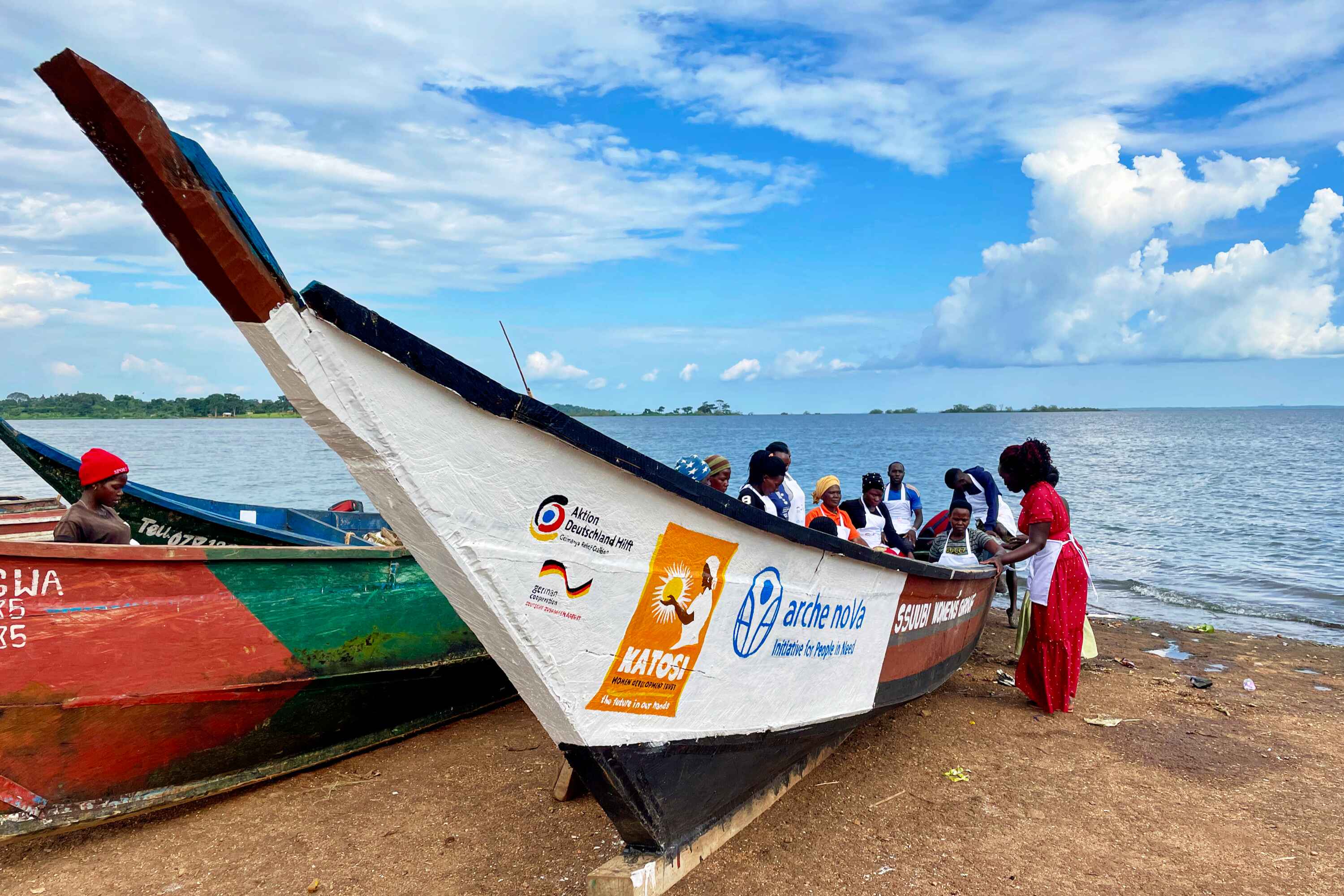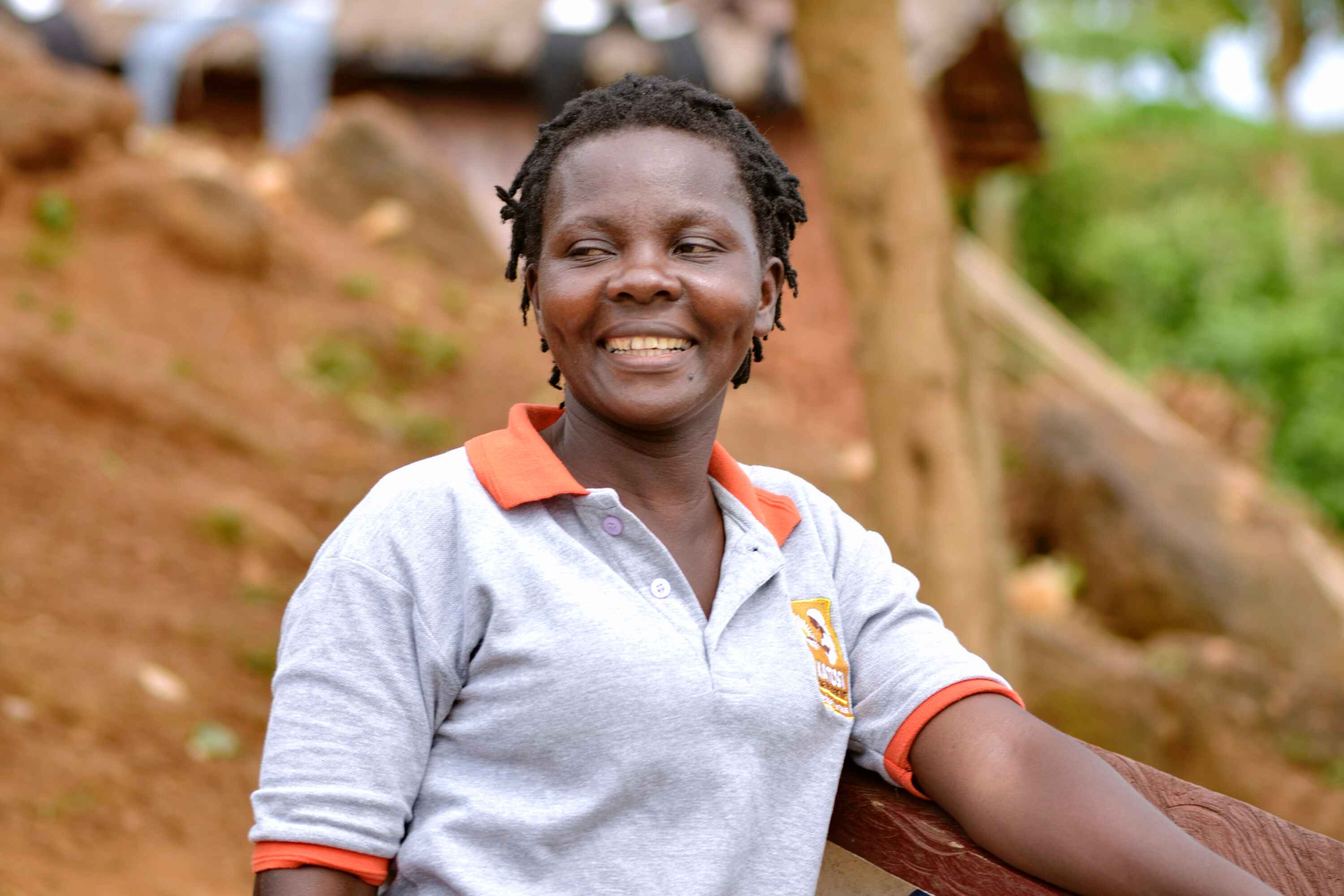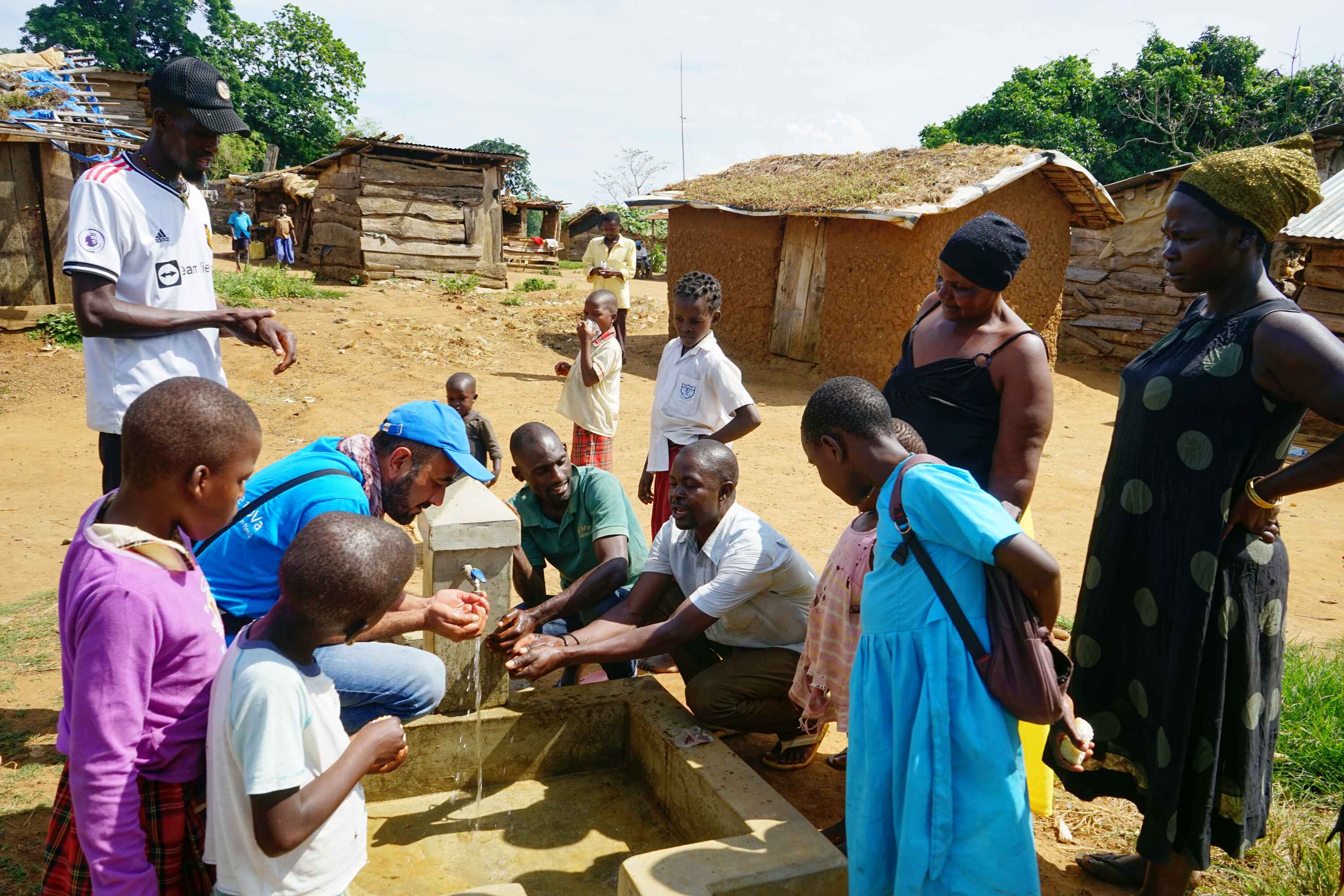Remote is the word that best describes the project villages of arche noVa on the shores of Lake Victoria. Although the capital Kampala is only about 50 kilometers away, the people here live in a different world: no developed roads, no electricity network, no running water. Instead, simple wooden houses in fast-growing settlements that are tolerated by the government but not connected to the infrastructure. Nevertheless, many people are drawn here because the lake promises an income.
Women take charge
Most people in the fishing villages live from fishing, with the men mostly working on the boats and the women processing and selling the fish. For many, this is barely enough to make ends meet. The women in particular would like greater economic independence.
With our local partner organization, the Katosi Women Development Trust (KWDT), we promote the commitment of local women. Together, we support women's self-help groups that can organize themselves at KWDT. In the village of Mbale, for example, a boat, including motor, license and fishing nets, was handed over to the women's self-help group as part of our project. They now use the equipment cooperatively and thus have the rudder in their own hands. The fishing is shared, the marketing of the shares is still left to each woman herself. Christine Mazzi is very happy about this solution. She has learned a lot about business management and sales strategies in the course of the project. Today, her income is enough to support her five children. "I can send my children to school and even pay for the school bus," she says.
Safe drinking water a key foundation
By improving water and sanitation, our project lays the foundation for positive changes on the ground. In numerous villages, communal toilets and shower rooms have already been built. Most recently, arche noVa has secured the supply of xx people on the island of Mbeya with the Katosi Women Development Trust (KWDT).
arche noVa Projektbesuch auf Mbeya Island
On the island of Mbeya, there was previously no water infrastructure at all. People got their water directly from the lake, which was a major health hazard because of the heavy contamination. "I still boiled the water, but most others did not," says Grace Gewokyalya of the women's support group on the island. Skin rashes, schistosomiasis, diarrheal diseases and other infections were very common, she says.
Just a few weeks after the completion of construction work on site, people report that the health situation has already improved significantly. The response to the construction of the sanitary facilities and shower rooms has also been very positive. The women in particular appreciate the extra privacy. Committees have been set up to operate and maintain the facilities that have been built. How important the infrastructure is to the islanders is shown by the fact that they have hired a security service to protect the water system. This, as well as the operation and repairs, are financed by a specially introduced fee system.
At a glance:
arche noVa in UGANDA, Mukono district
- Construction and expansion of water and sanitation supply systems.
- Promoting good hygiene practices, waste management, and health care.
- Capacity building in WASH and disaster risk reduction.
- Support women's groups in fisheries by purchasing boats and legal fishing nets.
- Support women's groups in fish processing. Through training and new drying equipment.
- Promoting women's income generation.
Our local partner is the Katosi Women Development Trust (KWDT), an umbrella organization of 44 women's self-help groups.















